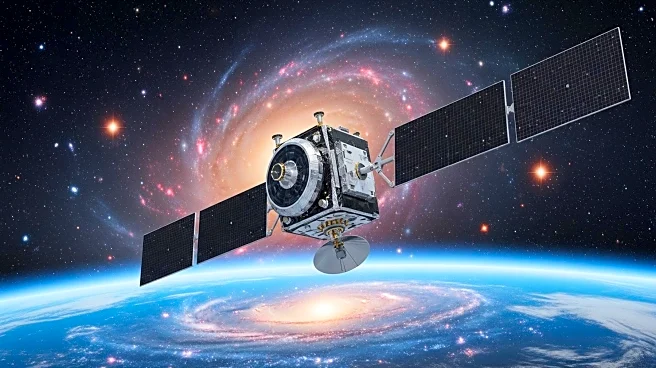What is the story about?
What's Happening?
SpaceX successfully launched a Falcon 9 rocket from NASA's Kennedy Space Center in Florida, carrying three spacecraft designed to study the sun and space weather. The primary payload, NASA's Interstellar Mapping and Acceleration Probe (IMAP), aims to investigate the heliosphere, a magnetic bubble created by the sun that protects the solar system from harmful radiation. This mission is crucial for providing radiation warnings to astronauts, especially those operating beyond Earth's protective magnetosphere. Alongside IMAP, NASA's Carruthers Geocorona Observatory will analyze Earth's exosphere to understand space weather impacts, while NOAA's Space Weather Follow-on spacecraft will track solar storms, offering advanced warnings to mitigate potential disruptions to satellites and power grids.
Why It's Important?
The launch of these probes is significant for advancing our understanding of space weather and its effects on Earth and human activities in space. As humanity ventures further into space, missions like IMAP are vital for ensuring astronaut safety by providing actionable information on radiation threats. The ability to predict and respond to solar storms is crucial for protecting technological infrastructure, including satellites and power grids, from disruptions. This collaboration between SpaceX, NASA, and NOAA highlights the importance of studying space weather to safeguard both space missions and terrestrial systems.
What's Next?
The spacecraft will travel approximately 108 days to reach the Lagrange point, a stable location about 1 million miles from Earth towards the sun. Once there, they will begin their scientific observations. The data collected will be used to enhance our understanding of space weather phenomena and improve predictive models. Stakeholders, including space agencies and industries reliant on satellite technology, will closely monitor the findings to adapt their strategies for mitigating space weather impacts.
Beyond the Headlines
This mission underscores the growing need for international cooperation in space exploration and the study of space weather. As more countries and private entities engage in space activities, collaborative efforts like this can lead to shared benefits and improved safety protocols. The ethical considerations of space exploration, such as ensuring the safety of astronauts and protecting Earth's technological infrastructure, are increasingly important as humanity expands its presence beyond our planet.

















